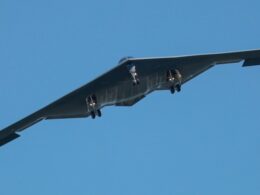Hello Swampians, it’s Jonathan Derbyshire here, the FT’s US opinion editor, filling in for Rana.
On Saturday night, Americans went to bed digesting the news that the US had struck three nuclear sites in Iran, thereby joining Israel’s attacks on the Islamic Republic and potentially embarking on just the kind of foreign entanglement that President Donald Trump, in his inaugural address in January, had insisted would be a thing of the past.
Trump said back then that “we will measure our success not only by the battles we win but also by the wars that we end — and perhaps most importantly, the wars we never get into.” And he declared that his “proudest legacy will be that of a peacemaker and unifier”.
How will that ambition be advanced by Saturday’s strikes, in which, according to the president himself, nuclear facilities at Fordow, Natanz and Isfahan were “completely and totally obliterated”?
The extent of the damage to Iran’s nuclear enrichment technology in fact remains unclear and assessing it is a question for the experts. But as far as Trump’s stated aim of being a peacemaker in the Middle East is concerned, his calculation is fairly transparent. As my colleague Edward Luce, who I’m delighted to have as my respondent today, wrote a few hours after the attacks, “Trump is hoping that his awesome display of power will bring the curtain down on the war”. But of course, Ed went on, “that is not his decision to make”. It’s easier to start a war than to finish one.
At the end of last week, when Trump was insisting he was going to give himself “two weeks” to decide whether or not to strike Iran, it was still possible to conclude, as Ed himself did in a column published the day before the operation, that he was “inching away from war”. Indeed, this was a conclusion encouraged by the battle raging inside the Republican party — and, one assumes, the administration itself — between the “restrainers”, who believe the US shouldn’t be lured into trying to complete a job that Israel started but couldn’t finish, and born-again neoconservatives who are spoiling for war.
The clearest example of these growing tensions within the intermittently fissiparous Trump coalition was the interview — or “shouting match”, in Ed’s accurate description — that pitted the Maga-aligned former Fox News anchor Tucker Carlson, who has said he believes there is “zero credible intelligence” to suggest that Iran is building a nuclear bomb, and Texas senator and uber-Iran hawk Ted Cruz.
“Each,” Ed observed, “claimed to be the keeper of the Trumpian flame from polar opposite positions. Trump’s managerial style is usually to encourage squabbling between underlings. That enhances his role as the decider.”
However, in Ed’s reading of things, such internecine squabbling, while a sign of real divisions, should not distract us from the fact that “it is Israel’s Benjamin Netanyahu . . . who has been dictating the agenda” on Iran over the past few weeks. The real “battle for Trump’s mind”, in Ed’s view, is thus between Netanyahu, “who needs the US to finish the war that he started”, and Trump’s former chief strategist Steve Bannon, who has a “direct line to the Maga base” and argues that the president should not be tricked into an “Israel First” policy.
Addressing the nation on Saturday night after the US attack, Trump thanked Netanyahu and God — in that order. Netanyahu’s gleeful congratulating of the president for deciding to use the “awesome and righteous might of the United States” against Iran told you all you needed to know.
As for Bannon, he didn’t hold back. Netanyahu, he said, is the “last guy on earth you should be thanking”. By apparently tying his fate to that of the Israeli prime minister, Bannon added, Trump is in danger of alienating the many in his base who have supported him precisely because of his stated allergy to misbegotten adventures abroad. “He has got to talk to Maga,” Bannon said. “There are a lot of Maga that are not happy about this.”
Ed, my question for you is a simple one: how worried should Trump be about growing dissent inside the Maga camp over war with Iran? And what can he do — or is he willing to do — to placate those, like Bannon, who are opposed to further escalation? On Sunday morning, vice-president JD Vance, whose instincts have always been those of a “restrainer”, insisted that the US has “no interest in a protracted conflict. We have no interest in boots on the ground.” Will Bannon and others in the Maga-sphere find that at all reassuring?
Recommended reading
-
The FT is lucky to have a correspondent inside Iran. Najmeh Bozorgmehr’s latest dispatch from Tehran, written with our Middle East editor Andrew England, examines the difficult choices faced by Iran’s supreme leader Ali Khamenei and is essential reading.
-
In the Washington Post, Sohrab Ahmari, one of the most interesting pro-restraint voices on the American right, and Matt Duss, former foreign policy adviser to leftwing senator Bernie Sanders, argue that by joining the war, Trump risks betraying “the millions of working-class Americans who pulled for him last year seeking domestic revival, not foreign adventurism”.
-
David Remnick, editor of the New Yorker, issues a timely warning about the fantasy of regime change in Iran.
-
And away from the war, Max Rivlin-Nadler, in the New York Review of Books, asks if the young democratic socialist candidate Zohran Mamdani could yet beat frontrunner Andrew Cuomo in New York’s Democratic mayoral primary tomorrow. One of the ironies of Mamdani’s campaign, Rivlin-Nadler writes, is that it “looks a lot like the coalition and movement — spurned by political insiders” that first propelled Cuomo’s father, Mario, to political prominence in the late 1960s.
Edward Luce responds
Thanks Jonathan. I’m at a conference in Europe and was awoken by a colleague with the news at 3am. It was hard to get back to sleep after that. The answer to your question hinges a great deal on whether Trump has calculated correctly that Iran’s retaliation will be muted. Then he can declare victory, graciously share the credit with the almighty, and move on — at least that is what he will be hoping. In which case, Bannon, Carlson, Kirk et al will probably also change the subject. None of them relish being Trump critics.
If Iran escalates, however, and oil prices shoot north of $100, it will be hard for Trump to avoid a fracture within Magaworld. It has become fashionable to say that the Maga base believes whatever Trump tells it to believe and that he alone gets to define the meaning of “America First”. I think that’s too simple. Bannon has also been complaining about Trump’s “big, beautiful (budget) bill”, because its steep Medicaid cuts will hurt the base to pay for tax cuts that will further enrich plutocrats like Elon Musk. Trump has been almost as consistent in his pledge to protect entitlements for blue-collar Americans as he has in his vow to end the forever wars.
To break one foundational pledge is unfortunate. Two would amount to a degree of carelessness that might just trigger a rebellion. No prizes for guessing who would benefit from such a split. His initials are JD.
Your feedback
We’d love to hear from you. You can email the team on swampnotes@ft.com, contact Ed on edward.luce@ft.com and Jonathan on jonathan.derbyshire@ft.com, and follow them on X at @jderbyshire and @EdwardGLuce. We may feature an excerpt of your response in the next newsletter
Source link









